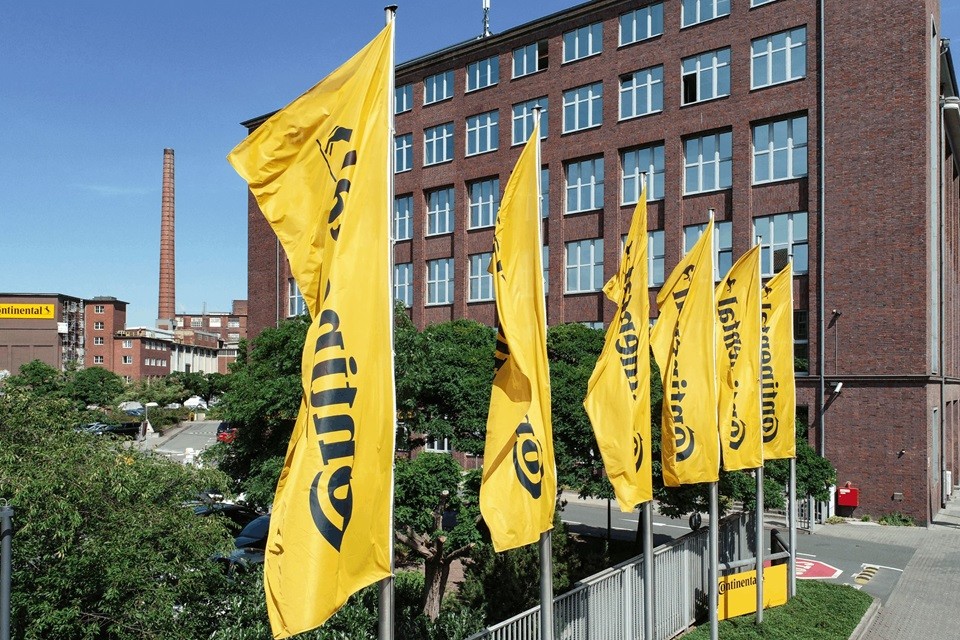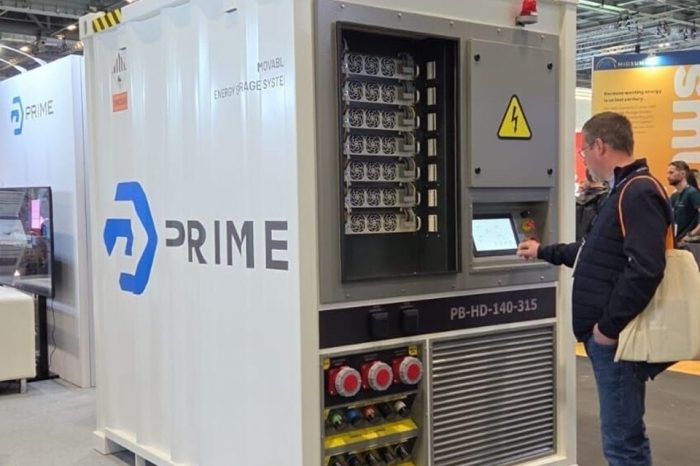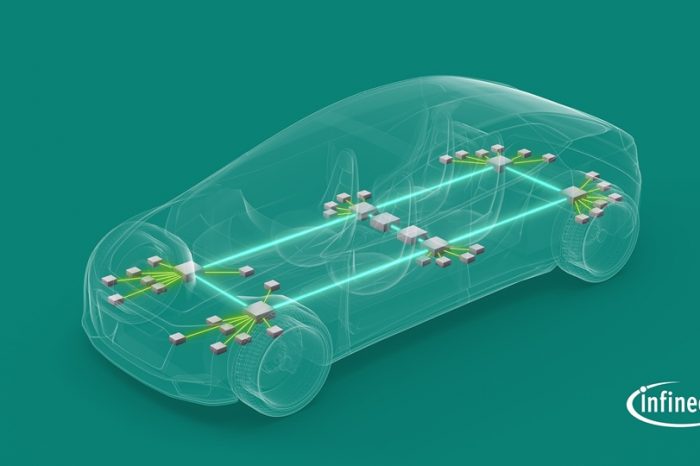Continental increases sales in 2023, targets further growth this year

Continental achieved its financial targets in the past fiscal year, taking the company a step closer to its mid-term targets as it continues to face challenging conditions.
The geopolitical situation, additional inflation-related costs of around €1.4 billion, exchange-rate effects and high costs for special freight all had a considerable impact on financial results.
For the current fiscal year, the technology company is targeting an increase in sales and earnings (consolidated sales: around €41.0 billion to €44.0 billion, adjusted EBIT margin: around 6.0 to 7.0 percent). Continental expects the margin to improve further, particularly in the Automotive group sector, thanks mainly to the cost-cutting measures, price adjustments and efficiency improvements adopted last year. The goal is also to achieve above-market growth.
“The past fiscal year posed major challenges for us with geopolitical uncertainties, persistent strains on the supply of semiconductors, and inflation,” said Continental CEO Nikolai Setzer at the annual press conference in Hanover on Thursday, adding: “We achieved our goals for 2023 and made improvements toward achieving our mid-term targets, despite the challenging conditions. For this, my special thanks go to our around 200,000 employees worldwide. I’m proud of our team, because together we made substantial progress. In 2024, we will once again tackle the challenges facing us head on and pursue our goals for the year with determination.”
In the past fiscal year, Continental achieved consolidated sales of €41.4 billion (2022: €39.4 billion, +5.1 percent). Its adjusted EBIT was €2.5 billion (2022: €1.9 billion, +31.6 percent), corresponding to an adjusted EBIT margin of 6.1 percent (2022: 4.9 percent). All three group sectors contributed to the improved adjusted EBIT margin.
Net income increased to €1.2 billion in 2023 (2022: €67 million, +1,635 percent). Adjusted freecash flow was €1.3 billion (2022: €200 million, +547 percent).
Market outlook and forecast for fiscal 2024
In 2024, Continental expects the global production of passenger cars and light commercial vehicles to change by -1 to 1 percent. Last year, this increased by almost 10 percent compared with 2022 to more than 90 million vehicles. For the global tire-replacement business, the technology company expects sales volumes to develop by 0 to 3 percent.
Higher costs for wages and salaries – expected to amount to around €500 million – will weigh heavily on the earnings position in fiscal 2024, with around half of these costs attributable to the Automotive group sector.
Based on these assumptions and given the exchange rates at the beginning of the fiscal year, Continental anticipates consolidated sales for 2024 of around €41.0 billion to €44.0 billion and an adjusted EBIT margin of around 6.0 to 7.0 percent.
Continental expects the Automotive group sector to generate sales of around €20.0 billion to €22.0 billion and an adjusted EBIT margin of around 3.0 to 4.0 percent.
For the Tires group sector, Continental forecasts sales of around €14.0 billion to €15.0 billion and an adjusted EBIT margin of around 13.0 to 14.0 percent.
Continental anticipates sales in the ContiTech group sector of around €6.6 billion to €7.0 billion and an adjusted EBIT margin of around 6.5 to 7.5 percent.
Automotive improves: adjusted EBIT margin of 1.9 percent; order intake of €27.1 billion
In the Automotive group sector, sales increased by 10.8 percent to €20.3 billion (2022: €18.3 billion). Automotive significantly increased its adjusted EBIT margin compared with the previous year to 1.9 percent (2022: -0.3 percent). The improvement in earnings was attributable in particular to higher production efficiency thanks to a more stable material supply, strict cost discipline and a lower special freight volume.
In addition, Continental further increased order intake in the Automotive group sector. The technology company generated orders worth around €27.1 billion last year, confirming its strong position in terms of purchase-relevant future technologies. Year-on-year, the order volume increased by around 16 percent (2022: more than €23 billion).
The order from the exclusive partnership with Aurora contributed to this. Together, Continental and Aurora will bring autonomous trucking systems to the mass market – starting with the USA by 2027. Just a few weeks ago, they defined the design and architecture of the future driverless system, reaching this development milestone less than a year after their partnership began.
Tires delivers stable profitability: adjusted EBIT margin of 13.5 percent
The Tires group sector delivered stable profitability despite weak tire-replacement markets in Europe and North America, achieving sales of €14.0 billion (2022: €14.0 billion, -0.3 percent). At 13.5 percent, the adjusted EBIT margin was higher than in the previous year (2022: 13.1 percent). The margin improvement was mainly due to the continued high share of premium tires and a strong end-of-year business in Europe.
With the UltraContact NXT, Continental last year launched the most sustainable production tire currently on the market. It has been available to tire dealers in Europe since July 2023. Comprising up to 65 percent renewable and recycled materials, it combines a high share of sustainable materials with maximum safety and performance. It therefore has the highest possible rating (“A”) of the EU tire label in all performance categories (rolling resistance, wet braking and exterior noise).
Continental has also established a strong position in the tire original equipment segment for electric vehicles. The 10 highest-volume manufacturers of electric vehicles currently all place their trust in tires from Continental.
ContiTech stronger: adjusted EBIT margin of 6.7 percent
The ContiTech group sector performed positively despite a weak industrial environment, generating sales of €6.8 billion (2022: €6.6 billion, +3.7 percent) and an adjusted EBIT margin that was up significantly year-on-year at 6.7 percent (2022: 4.7 percent).
In May last year, ContiTech also launched a strategic realignment aimed at enhancing the group sector’s impact and efficiency, improving customer and market proximity and further expanding its industrial business. Alongside this, the group sector also strengthened its industrial business through company takeovers, fully acquiring the printing technology business of Trelleborg, for example.
This step expanded the technology company’s range of surface solutions in the field of printing technology at the same time as boosting its business with industrial clients. Continental also acquired the conveyor and maintenance company Vertech AB, a leading service provider for the mining industry in Sweden and Norway. This acquisition marks an important next step toward ContiTech’s goal of offering its industrial customers in Sweden and other northern European countries a comprehensive package of products, services and solutions.
Number of employees
At the end of 2023, Continental had around 200,000 employees (+1.9 percent compared with the end of 2022). The number of software and IT specialists increased slightly to around 22,000 worldwide.



















